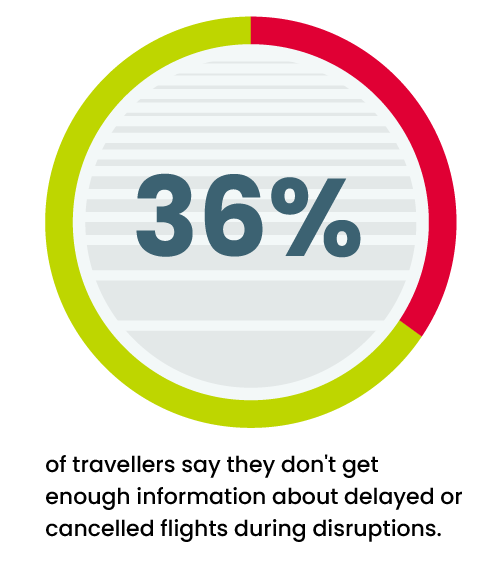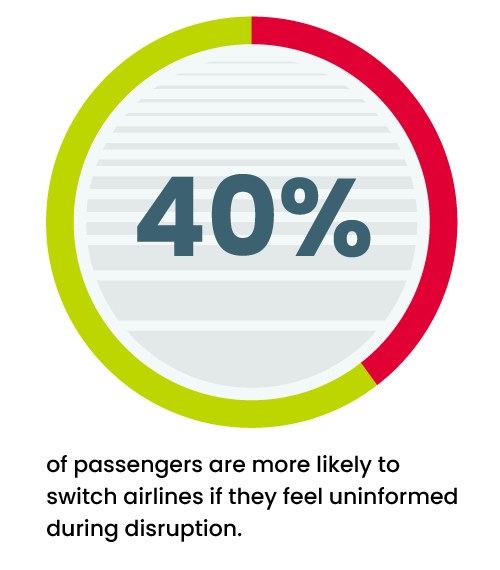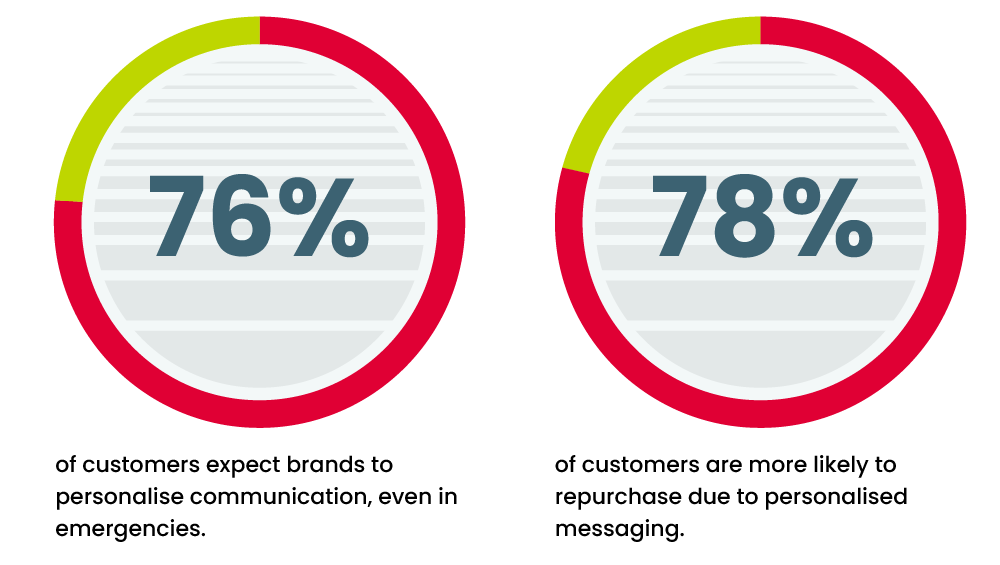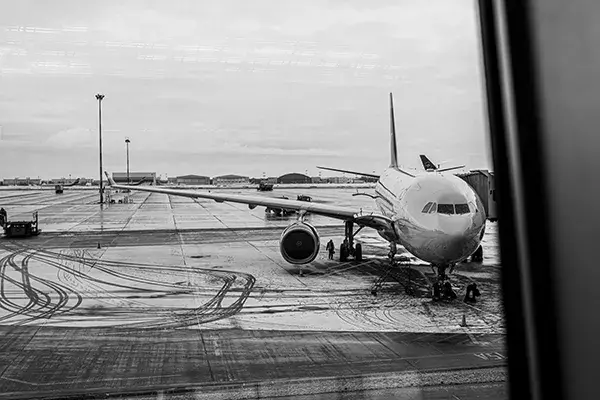01 October 2024 | Blog
The inevitable IT outage: How to ensure your airline survives and thrives
01 October 2024 | Blog
The inevitable IT outage: How to ensure your airline survives and thrives
IT outages aren’t just occasional interruptions—they are an inevitable threat capable of halting airline operations and impacting millions of passengers in an instant.
The July 2024 CrowdStrike outage highlighted this reality as we saw it ground over 5,000 flights and delay more than 35,500 others globally. However, the implications went far beyond delays and cancellations: communication systems collapsed, confusion spread, and airlines found themselves struggling to maintain passenger trust. Delta Airlines alone reported losses of $500 million due to the incident, underlining the severe financial impact these failures can have.

The effects of such outages can be disastrous, with immediate financial losses followed by long-term reputational damage. While it may not seem like the biggest priority at the time, a lack of timely communication is enough to drive passengers to switch airlines, hurting loyalty and revenue. In fact, 36% of travellers report not receiving enough information about delayed or cancelled flights during disruptions, and this communication gap can seriously erode passenger trust. In an industry where real-time, accurate information is critical, how can airlines ensure that they keep passengers informed during IT failures?
Here are three critical factors airlines must consider to prepare for the next system outage:
1. Agility in communication: Time is money (and loyalty)
When an outage strikes, airlines have minutes—not hours—to communicate with passengers. Agility, defined as the ability to respond swiftly and adapt in real time, becomes critical in these high-pressure situations. But it’s not just about speed; it’s about delivering relevant, timely information.

Passengers are around 40% more likely to switch to another airline if they feel uninformed during an act of disruption. Every moment without communication increases their frustration and erodes trust. To prevent this loss of confidence, airlines must adopt a proactive communication strategy that delivers accurate updates quickly to keep passengers reassured.
Agile communication enables airlines to send out more than just delay notifications—it allows them to keep passengers informed and in control, whether that’s advice, rebooking options, compensation information, or access to alternative travel arrangements. Quick, effective communication mitigates the passenger’s stress and helps preserve loyalty.
2. Personalisation: Your passengers expect more than one-size-fits-all
Today’s airline passengers demand more than generic notifications. They want to know how a disruption affects them specifically—whether it’s their compensation eligibility, rebooking options, or the next steps for their journey. This expectation for personalisation is even greater in times of crisis.

In fact, 76% of customers expect brands to personalise its communications, even in emergencies, with 78% saying such messaging made them more likely to repurchase. Airlines that offer tailored, relevant updates during IT outages not only build trust but also reduce the strain on customer service teams, as fewer passengers need to reach out for clarification.
Personalisation is no longer a luxury—it’s essential for ensuring passengers feel informed and supported. By using hyper-personalised messages at every stage of the journey, from the first sign of disruption to final resolution, airlines can greatly improve the passenger experience.
For more on how to make personalisation a core part of your communication strategy, read our Customer Journey Mapping guide where you’ll hear insights from industry experts on the pain points that shape your passengers' experiences as well as how to use these techniques to enhance customer loyalty, turning one-time interactions into long-term advocates.
3. Fail-safe solutions: How to keep communication going when systems fail
No matter how agile or personalised your communications are, they require a robust infrastructure to deliver results when systems fail. That’s where our Always-on Passenger Communications solution comes in. Acting as a safety net, it ensures that even during major IT disruptions, communication with passengers continues without interruption.
Our solution provides continuous access to critical PNR data and an independent communication channel. This means that passengers receive vital updates no matter what is happening with other systems. By ensuring the flow of information, airlines can avoid confusion, protect their reputation, and maintain passenger trust.

Using the right tools to stay in control
Whether your airline already has an Offline Data Store (ODS) or not, 15below can offer a tailored solution. Our support includes seamless integration with existing systems, personalised training, and 24/7 customer service, so your team is always equipped to ensure that communication with passengers never stops—even when other systems do.
Preparation is everything
IT outages are inevitable. The airlines that survive—and even thrive—are those that invest in agility, personalisation, and fail-safe communication solutions. By building these core elements into their communications strategies, airlines can mitigate the impact of disruptions, preserve passenger trust, and protect their reputation. By 2025, customer experience will overtake price and product as the key brand differentiator, making it essential for airlines to future-proof their operations.
15below’s Always-on Passenger Communications solution offers the infrastructure to ensure your communication never stops. To learn more about how our solution can future-proof your operations, schedule a consultation with one of our passenger experience experts today.




